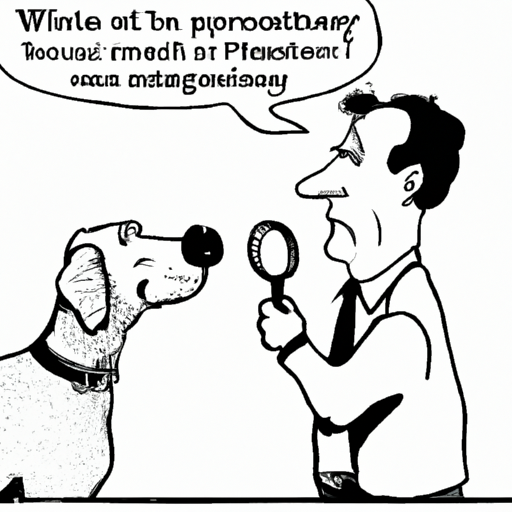Understanding Your Dog’s Nose
Your dog’s nose is an incredible piece of biological machinery. Think of it as a super-powered air conditioning unit that can both heat and cool the air it breathes in. It’s also a highly sophisticated chemical sensor, allowing them to smell things that we can’t even begin to imagine.
A damp nose helps to capture and dissolve scent particles in the air, making them easier for your dog to detect. That’s why a dog’s nose is often damp. It’s a normal part of their biology. But what happens when that damp nose becomes a dripping one?
Common Causes of a Dripping Nose
If your dog’s nose is dripping, it could be due to several reasons:
-
Allergies: Just like us, dogs can be allergic to a wide range of substances. This could include dust, pollen, certain foods, or even some types of dog toys.
-
Upper Respiratory Infections: These can cause a number of symptoms, including a runny nose, coughing, sneezing, and reduced appetite.
-
Dental Problems: Issues with your dog’s teeth, such as gum disease or abscesses, can sometimes cause a runny nose.
-
Foreign Body: Dogs love to sniff and explore. Sometimes, they can inhale something like a grass seed or a piece of food that gets stuck in their nose.
Here’s a quick comparison of these common causes:
| Cause | Symptoms | Treatment |
|---|---|---|
| Allergies | Sneezing, itching, red eyes, runny nose | Antihistamines, allergy shots, avoidance of allergen |
| Upper Respiratory Infections | Coughing, sneezing, runny nose | Antibiotics, rest, hydration |
| Dental Problems | Bad breath, difficulty eating, runny nose | Dental cleaning, antibiotics, tooth extraction |
| Foreign Body | Sneezing, pawing at nose, runny nose | Removal of foreign body, antibiotics |
When to Be Concerned
Not all nose drips are a cause for concern. But if you notice any of the following symptoms, it’s time to call the vet:
- Your dog is having difficulty breathing
- The discharge is bloody or pus-filled
- Your dog is behaving unusually or seems to be in pain
- The dripping nose is accompanied by other worrying symptoms, such as loss of appetite, vomiting, or diarrhea
Preventing a Dripping Nose
While not all causes of a dripping nose can be prevented, there are steps you can take to reduce the risk:
- Keep your dog’s living area clean and free from dust and allergens
- Provide regular dental care, including teeth brushing and professional cleanings
- Keep your dog’s vaccinations up to date to prevent infections
- Supervise your dog during outdoor play to prevent them from inhaling foreign bodies
Frequently Asked Questions
Q: How do I know if my dog’s nose drip is serious?
A: If the drip is accompanied by other symptoms like difficulty breathing, bloody discharge, unusual behavior, or other worrying symptoms, call your vet immediately.
Q: Can I give my dog human allergy medication?
A: Some human medications can be harmful to dogs. Always consult with your vet before giving your dog any medication.
Q: What can I do to prevent my dog’s nose from dripping?
A: Regular cleaning, dental care, vaccinations, and supervision during outdoor play can all help prevent a dripping nose.
In conclusion, a dripping nose can be a sign of various issues, from allergies to more serious health problems. By understanding the potential causes and signs to watch out for, you can ensure your furry friend stays healthy and happy.



